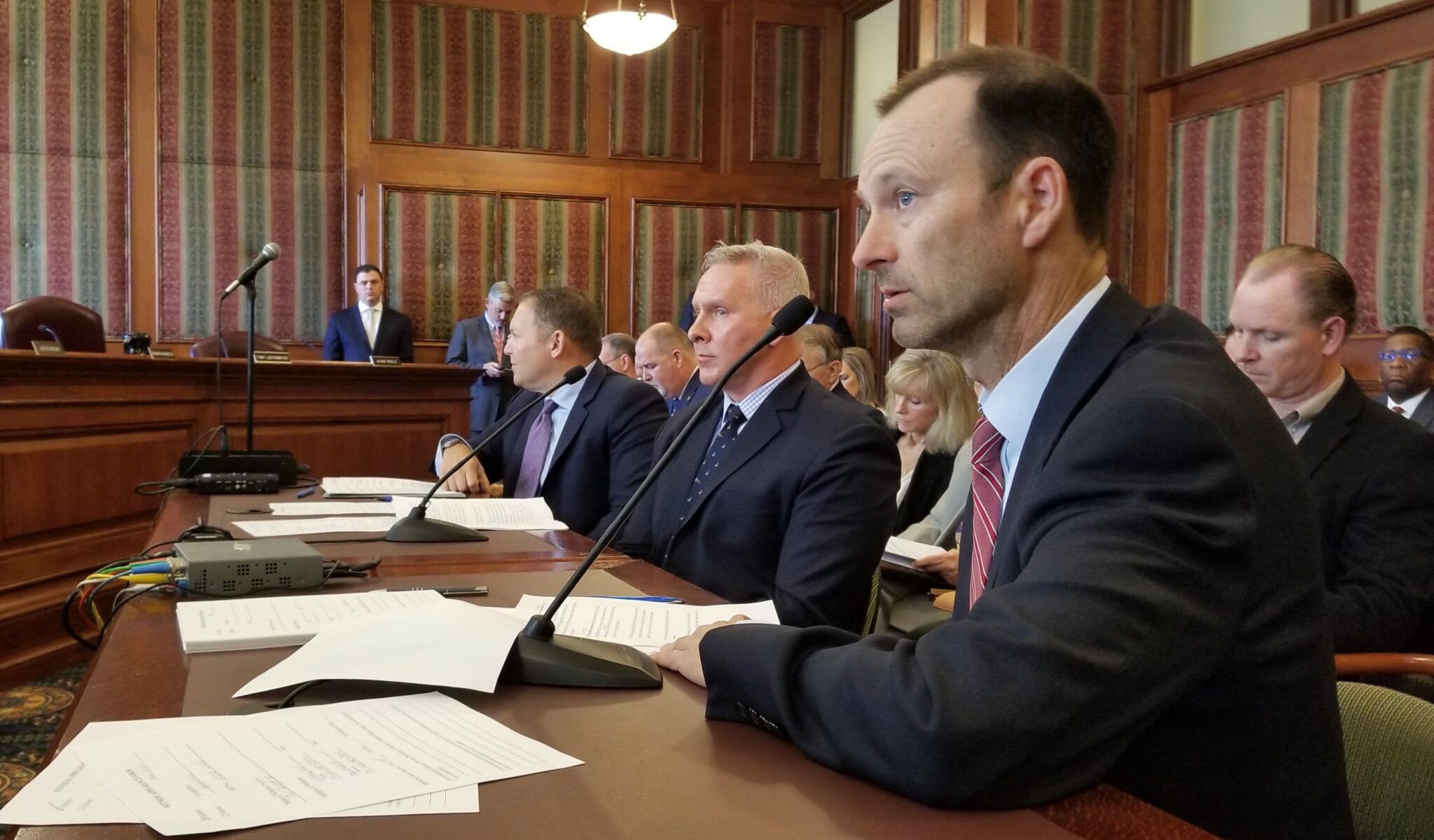St. Louis Cardinals lead Missouri’s major teams to launch initiative on sports betting

Frustrated with legislative inaction on sports wagering, Missouri’s major sports franchises are going directly to voters.
On Friday, a coalition that includes six major sports teams and is backed by major donations from two sports betting platforms announced an initiative campaign to put sports gambling on this year’s ballot. In a news release, St. Louis Cardinals President Bill DeWitt III said efforts to persuade lawmakers to legalize sports wagering have been futile.
Bills legalizing sports betting have passed repeatedly in the Missouri House over the past few years, only to die in the Senate, DeWitt said.
“Therefore, as we are not optimistic that this pattern will change during the upcoming legislative session, we are currently proceeding with an initiative petition campaign to put the issue of legalized sports wagering on the ballot for Missouri voters in 2024, and, beginning this week, we are launching our campaign and will be collecting signatures to support this initiative petition,” he said.
The demand for legal sports betting clearly exists in Missouri, according to new data from GeoComply, the company that serves the industry to prevent wagers from locations where it is illegal. The company has identified more than 356,000 user accounts in the state and blocked 24.5 million attempts to place a bet in 2023.
Missourians are also crossing state lines in large numbers to make bets. GeoComply tracked 6,670 sportsbook usernames who were in Missouri and then in Kansas before a bet was placed and 5,673 sportsbook usernames that were located in Missouri and later in Illinois before a bet was placed.
At a news conference Thursday, Senate President Pro Tem Caleb Rowden said he doesn’t expect the initiative campaign to spur action in his chamber. Supporters of a competing form of gambling — video lottery games — won’t let a sports wagering bill pass if it does not include legalizing their games. Sports wagering supporters won’t vote for a bill that includes video lottery games.
“I don’t think anything is different this year one way or the other,” Rowden said. “I don’t know that it makes a tremendous difference in this chamber. Both sides are pretty entrenched.”
Under the proposed constitutional amendment, each of the six sports franchises that play in arenas that seat 11,500 or more would be eligible for a license to receive bets on games, player performance and other elements of a contest with a variable outcome. Companies that operate Missouri’s 13 casinos would be eligible for a license, along with two online platforms with no physical presence in the state.
Wagers could be placed online, or in person at the casinos and sports venues.
The state would tax the proceeds, receiving 10% of the net revenue, with the fiscal note estimating that could be as little as nothing or as much as $28.9 million per year. After putting $5 million into a fund to deal with compulsive gambling, the remainder of the revenue would go to public schools and higher education programs.
The campaign is starting with $500,000 in the bank. On Thursday, the campaign committee, Winning for Missouri Education, reported contributions of $250,000 each from FanDuel and DraftKings, two of the biggest online sports gambling platforms.
The sports teams working together on the initiative are the St. Louis Cardinals, St. Louis Blues, St. Louis CITY SC, Kansas City Chiefs, Kansas City Royals, and the Kansas City Current.
Missouri’s casino companies have not yet given up on the legislative path, said Mike Winter, lobbyist for the Missouri Gaming Association. The members of his organization have not been involved in discussions of which of the 12 proposals submitted to the secretary of state’s office should be pursued, he said.
The members need to review the proposal before committing, he said.
The proposal selected seems designed to bring the casinos on board. Some of the proposals submitted for review did not grant casinos any licenses, while the one chosen allows casinos to operate a sports gambling platform on their own or in partnership with an online provider.
To make the ballot, supporters have until May 8 to gather signatures from registered voters equal to 5% of the vote for governor in 2020 in each of six congressional districts. That means acquiring between 171,592 and 188,537 signatures, depending on which of the eight districts are chosen.
Since the U.S. Supreme Court struck down federal laws banning sports betting nationally in 2018, sports wagering has been legalized in every state adjoining Missouri except Oklahoma.
Sports wagering in Missouri promises to be a market with at least as much money available as is spent on the lottery or in casinos each year. The Missouri Lottery sold $1.8 billion in tickets each of the past three years, and casinos won $1.9 billion from players in the fiscal year that ended June 30.
Kansas recorded $1.85 billion of wagers in the first year of legalized sports betting.
In the news release announcing the campaign, organizers said it would regulate a black market within the state and keep at home residents who go to adjoining states to bet legally.
“Recent estimates suggest that Missourians place roughly $2 billion a year in bets using offshore gaming websites,” the release stated, “while other Missourians drive to neighboring states to place wagers.”
Miss Clipping Out Stories to Save for Later?
Click the Purchase Story button below to order a print of this story. We will print it for you on matte photo paper to keep forever.

